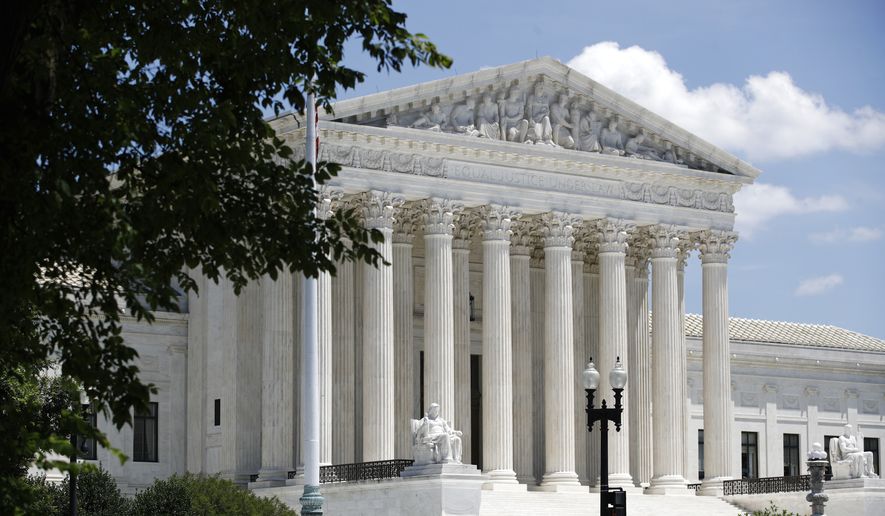Coal-producing states and power companies went to the Supreme Court Monday to try to block the Biden administration from imposing the president’s greenhouse gas policies without seeking more authority from Congress.
The case teed up big questions for the justices about how far a federal agency can go in tackling major policy questions when Congress hasn’t spoken.
“This case will determine who decides the major issues of the day: unelected bureaucrats or Congress, comprised of those elected by the people to serve the people,” said West Virginia Attorney General Patrick Morrisey, whose office brought one of four cases that the justices considered.
Environmentalists, meanwhile, see the cases as a test of the country’s — and the legal system’s — willpower to tackle what they consider an existential threat.
They appeared to have an ally in Justice Sonia Sotomayor, who at one point seemed to suggest that she wished the government had even more power to tackle greenhouse gas emissions.
“I really wish there was any regulation that eliminated carbon dioxide,” she said during Monday’s arguments.
But several of the court’s conservative justices seemed skeptical that Congress had intended the Environmental Protection Agency to go as far as it has.
The EPA says the Clean Air Act gives the agency power to set rules governing overall emissions of greenhouse gases from power plants.
Beth Brinkmann, a lawyer for several major power companies that back the EPA, said the agency already runs other emissions trading programs, and already polices power plants.
“It’s clearly in the wheelhouse,” she said.
Opponents said the law only allows the EPA to issue plant-by-plant rules, not an industry-wide emissions target.
“That immense authority cannot be reconciled with the statutory text and structure, let alone the major questions doctrine,” Jacob Roth, the lawyer arguing the case on behalf of the North American Coal Company, told the justices.
Behind the intricate and complicated legal battle are massive ramifications.
Environmental groups fear that a ruling against the EPA will erase any chance the Biden administration has to rein in greenhouse gases from power plants.
West Virginia counters that America’s economy could be upended if the administration is able to impose its will.
The oral argument came just hours after the U.N.’s Intergovernmental Panel on Climate Change issued a new report warning that the globe’s warming trend is already spawning “widespread” and irreversible impacts.
Environmental activists for years have been begging the federal government to be more active in forcing reductions in U.S. emissions of greenhouse gases.
Congress has stalemated on solutions, but the Obama administration tried to force action with its Clean Power Plan, which set national limits on power plants’ emissions, then allowed plants to buy or sell emissions credits in order to figure out who produced what. The goal was to try to discourage coal as an energy source.
The Trump administration tried to repeal that policy with its own Affordable Clean Energy Rule, but a federal court blocked it. Justices and lawyers spent a good bit of time debating Monday whether that means the strict Obama-era rules will go back into effect.
The Biden administration, meanwhile, has promised its own new rules, which are likely to follow the stricter approach of the Obama-era rules.
Several justices compared the EPA’s claims of power to the Food and Drug Administration’s attempt to regulate tobacco as a drug, the Centers for Disease Control and Prevention’s attempt to impose a coronavirus pandemic eviction moratorium, or the Occupational Safety and Health Administration’s attempt to impose President Biden’s coronavirus vaccine mandate on private companies.
All of those were found to be out of bounds by the Supreme Court.
Chief Justice John G. Roberts Jr. suggested that agency action must clear a “surprise” test — or, as he put it, “is it really surprising the agency did this?”
• Stephen Dinan can be reached at sdinan@washingtontimes.com.




Please read our comment policy before commenting.